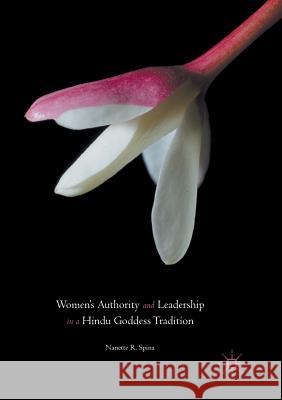Women's Authority and Leadership in a Hindu Goddess Tradition » książka
topmenu
Women's Authority and Leadership in a Hindu Goddess Tradition
ISBN-13: 9781349954711 / Angielski / Miękka / 2018 / 327 str.
Kategorie:
Kategorie BISAC:
Wydawca:
Palgrave MacMillan
Język:
Angielski
ISBN-13:
9781349954711
Rok wydania:
2018
Wydanie:
Softcover Repri
Ilość stron:
327
Waga:
0.41 kg
Wymiary:
21.01 x 14.81 x 1.83
Oprawa:
Miękka
Wolumenów:
01
Dodatkowe informacje:
Bibliografia
Wydanie ilustrowane
Wydanie ilustrowane











